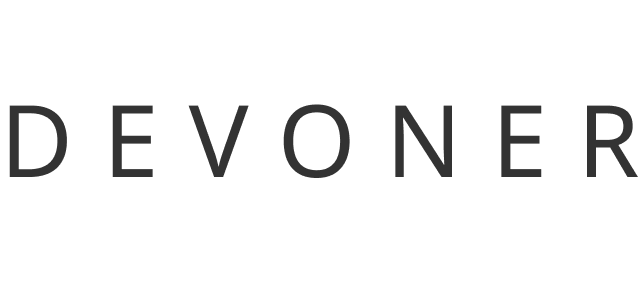In 2024, the ecommerce industry continues to evolve rapidly, and the landscape of ecommerce design has transformed significantly. As businesses increasingly adopt online platforms for daily transactions, the role of ecommerce designers has become indispensable in crafting engaging, conversion-driven digital storefronts.
Navigating the options between hiring an individual designer or an agency can be challenging for startups and businesses seeking the ideal fit for their ecommerce projects. Devoner, a leading company specializing in hiring and guiding the recruitment process for ecommerce designers, provides businesses with access to highly skilled professionals ready to elevate their online presence. Devoner focuses on delivering exceptional design solutions tailored to individual client needs, ensuring a seamless and impactful ecommerce experience.
This guide explores critical considerations for hiring ecommerce designers in 2024. By the end of this guide, businesses will possess the knowledge and expertise to make informed decisions and secure the right people to guarantee tailored-fit ecommerce products for their success.
Why Hire Ecommerce Designers?
Hiring ecommerce designers is essential for businesses seeking to establish a solid digital presence in 2024. These professionals bring a specialized skill set focused on creating visually appealing, user-friendly online shopping experiences. By leveraging their expertise, ecommerce designers maximize conversions and enhance customer loyalty.
With their knowledge of responsive design principles, they ensure seamless functionality across various devices and screen sizes, enhancing user experience and driving sales. Ecommerce designers also play a crucial role in establishing trust and credibility with potential customers through intuitive interface design and secure payment gateways.
Investing in skilled ecommerce designers empowers businesses to create engaging, conversion-driven digital storefronts that boost ecommerce sales, foster long-term customer relationships, and drive sustainable growth.
Ecommerce Designers vs. Ecommerce Developers
While both ecommerce designers and developers contribute to creating functional and visually appealing online stores, their roles and responsibilities differ significantly.
Focus and Expertise
- Ecommerce Designers: Focus on visual aspects, including layout, color schemes, typography, and user experience. They possess expertise in graphic design, UI/UX principles, and branding to create engaging and intuitive interfaces.
- Ecommerce Developers: Focus on the technical implementation, including coding, database management, integration of payment gateways, and ensuring website functionality. They are proficient in programming languages like HTML, CSS, JavaScript, and back-end technologies like PHP, Ruby on Rails, or Node.js.
Web Design vs. Web Development
- Ecommerce Designers: Create wireframes, mockups, and prototypes based on client requirements and industry best practices. They translate conceptual ideas into visually appealing designs that align with brand identity and user preferences.
- Ecommerce Developers: Take design assets provided by designers and bring them to life by writing code, building website structures, and implementing features and functionalities using programming languages and frameworks.
Creativity vs. Technical Skills
- Ecommerce Designers: Rely on creativity and artistic skills to design aesthetically pleasing and user-friendly interfaces that enhance the shopping experience.
- Ecommerce Developers: Prioritize technical skills and problem-solving abilities to ensure website functionality, performance, and security.
Front-end vs. Back-end Development
- Ecommerce Designers: Primarily work on the website’s front end, focusing on visual aspects that users interact with directly.
- Ecommerce Developers: Handle both front-end and back-end development, managing server-side programming, database management, and back-end processes.
Client Interaction and Collaboration
- Ecommerce Designers: Collaborate closely with clients, marketing teams, and other stakeholders to understand project requirements and gather feedback.
- Ecommerce Developers: Focus on technical discussions regarding website functionality and performance, working collaboratively with designers to ensure accurate implementation of design concepts.
How to Hire Ecommerce Designers in 2024
Step 1: Define Your Project Needs Clearly outline your ecommerce project’s objectives, scope, and goals, including specific functionalities, target audience, and desired user experience. Assess your budget and timeline constraints and gather input from stakeholders to ensure your project needs align with your business’s goals and vision.
Step 2: Research Potential Candidates Research potential candidates on platforms like Upwork, Freelancer, Fiverr, LinkedIn, Dribbble, and Behance. Seek referrals and recommendations from colleagues and utilize databases of reputable outsourcing firms like Devoner.
Step 3: Review Portfolios and Case Studies Examine portfolios and case studies to assess the quality, diversity, and relevance of candidates’ previous work in ecommerce design. Look for projects that showcase a strong understanding of user experience, responsive design, and effective conversion strategies.
Step 4: Conduct Technical Assessments Conduct technical assessments by assigning coding challenges, reviewing past projects, testing technical knowledge, and evaluating communication skills. These methods help accurately assess candidates’ technical skills and suitability for the job.
Step 5: Assess Communication and Collaboration Evaluate candidates’ communication and collaboration skills to ensure seamless interaction with your team throughout the project lifecycle. Look for candidates who demonstrate clear and proactive communication and the ability to work effectively within a team.
Step 6: Consider Pricing and Contracts Determine your budget and request detailed proposals from candidates. Review contract terms, negotiate flexibility, and ensure transparency regarding project scope, deliverables, and payment terms.
Step 7: Make an Informed Decision Evaluate all aspects of candidates, including their technical skills, portfolio, communication, and pricing. Seek input from key stakeholders and make an informed decision to select the ecommerce designer or agency that best aligns with your project needs and business objectives.
Ad Template When Hiring Ecommerce Designers
Job Description Are you passionate about crafting exceptional ecommerce projects? We seek talented and innovative ecommerce designers to join our team. As an integral part of our dynamic design team, you’ll have the opportunity to create captivating digital storefronts and drive online success for our clients.
Responsibilities
- Collaborate with design and development teams to conceptualize and create visually stunning and user-friendly ecommerce platforms.
- Optimize website layouts, navigation, and product displays for maximum conversion and engagement.
- Implement design solutions that meet client requirements and project goals.
Qualifications and Requirements
- Bachelor’s degree in Graphic Design, Web Design, or a related field.
- Proficiency in Adobe Creative Suite, Sketch, or Figma.
- Experience in ecommerce design with a strong portfolio showcasing your expertise.
- Familiarity with ecommerce platforms such as Shopify, WooCommerce, Magento, or BigCommerce.
- Excellent problem-solving skills and attention to detail.
How to Apply Submit your resume, a portfolio showcasing your ecommerce design projects, and a cover letter outlining why you’re the perfect fit for our team. Send your application to [company’s hiring email address].
Considerations in Hiring Ecommerce Designers
User-Centric Approach Prioritize designers who demonstrate a user-centric approach, creating intuitive user interfaces and seamless user experiences.
Conversion Optimization Skills Seek designers with expertise in conversion rate optimization to improve your ecommerce platform’s performance and drive higher revenue generation.
Mobile Responsiveness Ensure potential designers have experience in designing mobile-responsive websites to cater to the increasing use of mobile devices for online shopping.
SEO Awareness Consider designers who understand SEO principles to ensure your ecommerce platform is optimized for search engines and attracts organic traffic.
Post-Launch Support Evaluate candidates based on their willingness to provide post-launch support, including maintenance, updates, and ongoing services.
Key Takeaway
Hiring the right ecommerce designers is crucial for building a successful online store. Look for candidates with the technical expertise, experience, and knowledge of ecommerce best practices to create a functional and user-friendly platform. With the right designer, businesses can ensure a seamless online shopping experience for their customers and drive growth in the competitive ecommerce landscape.


